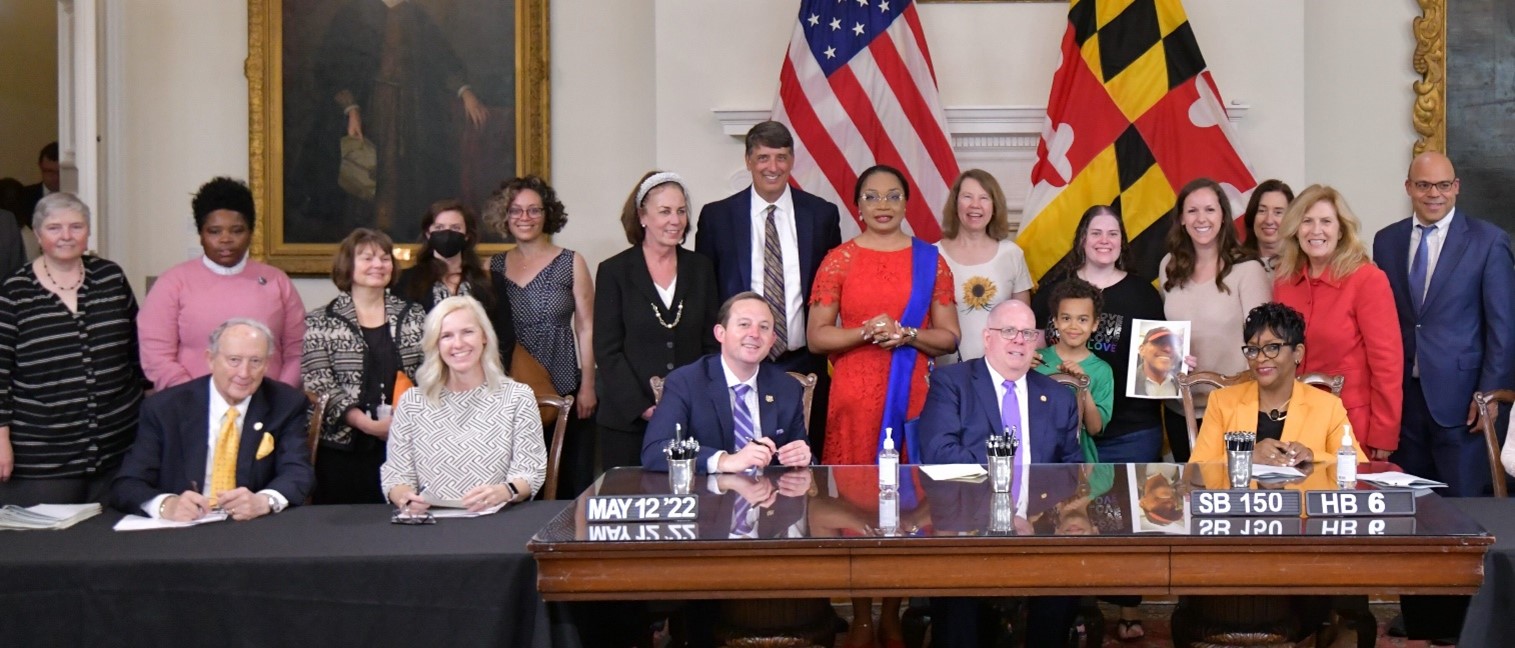Enter your email to receive the CareQuest newsletter:
November 18, 2022

It was the tragic story of 12-year-old Deamonte Driver — a boy who died from an untreated tooth infection that spread lethal bacteria to his brain — that first compelled advocates in Maryland to take up the fight to expand dental coverage to low-income children in 2007.
As they made meaningful advances in dental coverage for children in Maryland, the organization at the forefront of this work, the Maryland Dental Action Coalition (MDAC), then turned its attention to expanding dental coverage for adults on Medicaid. They knew they would need to take the time to build their case to Maryland legislators and make incremental progress toward their goal.
“We started by educating the state legislature about the issue and brought oral health champions on board to help these policymakers really understand the importance of oral health to overall health and the existing barriers in achieving equitable access to dental care,” says Mary Backley, CEO of MDAC.
And now, 15 years after MDAC and the advocate community began its work, on May 12, 2022, Maryland Governor Larry Hogan signed SB150/HB 6 into law, creating a dental benefit for all adults on Medicaid. Starting January 1, 2023, 800,000 Maryland Medicaid adult beneficiaries will gain access to comprehensive dental coverage.
The journey to that moment provides several lessons for oral health advocates in all 50 states.
Language Matters
As part of their education and advocacy campaign, MDAC and its partners first focused on their messaging. They prioritized terms like “coverage” and “investment.” And “IF we get adult dental” became “WHEN we get adult dental.”
“In this instance, it’s one word, it’s two extra letters, but it’s a world of difference when it comes to messaging and momentum,” says Robyn Elliott, who serves as MDAC’s policy and governmental affairs consultant. “The messaging piece is so important; it might actually be the most important thing we did as an advocacy community.”
Data Are Key
After fine-tuning their messaging, MDAC began to collect data to build the case to policymakers that expanding Medicaid adult dental coverage was a smart investment to make. They partnered with CareQuest Institute for Oral Health on a study related to how much Maryland’s state Medicaid program was paying for emergency room visits for non-traumatic dental conditions. The results of that study revealed that the state was spending $10 million per year for these visits, which are costly, ineffective, and largely avoidable with accessible preventive dental care.
The report also included more granular data that proved incredibly useful to MDAC.
“As part of its groundbreaking study, which was so important to build a groundswell of support, CareQuest Institute also gave county-level data so that stakeholders could go to their respective representatives and delegates and inform them of the savings,” says Backley.
A Network of Support
The efforts of MDAC and its partners led to a bill that was filed in the 2022 legislative session to create a dental benefit for all adults on Medicaid.
MDAC is part of an inclusive and committed advocacy community that goes well beyond the dental sector and includes behavioral health advocates, nurses, physicians, youth advocates, and AARP, among others. Backley credits this large network of stakeholders for helping to gain support for the bill.
“MDAC’s network is its greatest asset, and it was instrumental in galvanizing the legislative support and helping people understand the connection between overall and oral health,” says Backley.
When the hearing for the bill came up, more than 100 organizations signed on in support of it, and 30 individuals testified in its favor, including stakeholder representatives and patients, who spoke about what a profound impact dental care had on their overall health.
Victory After a Years-Long Fight
And now, 800,000 Maryland Medicaid adult beneficiaries will gain access to comprehensive dental coverage, including diagnostic, preventive, periodontal, and restorative services. No cap or annual maximum is applied to coverage, which will allow all individual patient needs to be met in a timely manner.
Backley and Elliott recall the day they were waiting for the final vote on the bill. They were in constant communication throughout the day, and Elliott worked down to the last minute with legislative staff to make sure the bill’s language included everything they wanted.
“We ended up getting everything we needed in the bill, which was, and is to this day, amazing,” says Elliott. “Then, it was one of the best phone calls I’ve ever made in my life, to Mary, who was the first person I called to tell the news.”
Impact and Implementation
Although this is a huge victory for MDAC and the people it fights on behalf of each day, MDAC’s work is not over. Now, they’ll shift their focus to implementation, which will include working with their partners and stakeholders on a significant education and outreach campaign to make sure people know that coverage exists and help them gain access. They’ll also work with the Maryland State Dental Association to inform their members that more providers are needed to cover the upswing in people seeking dental care.
For Backley, the impact this new legislation will have on low-income adults in Maryland is remarkable, and she looks forward to fielding the many calls MDAC will receive from people looking for help.
“I get a lot of calls to our office from people who are desperate and asking where they can get dental care,” says Backley. “Now when I get those calls, I can tell people that they will have dental coverage under the new law, starting January 2023. When I share that news, the joy and elation on the other end of the phone is indescribable. That’s quite extraordinary, and it’s the motivation to keep fighting. You are helping people in terms of changing their lives through their ability to get this critical care.”